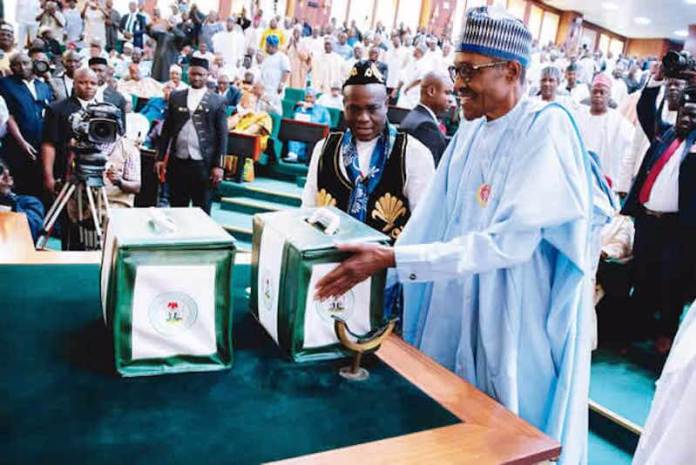Akor while commending the government and President Muhammadu Buhari for early presentation of the budget tagged ‘Budget of Consolidation’, however, expressed doubt “if the government is committed to consolidation in the healthcare system.”
He noted that while as a reflection of the overall budgetary increase over that of 2017, the health budget witnessed a nominal 14 per cent increase but a drop in percentage ratio far below the African Union (AU) and World Health Organisation (WHO) standard of 15 per cent.
He said: “We found that while the overall National Budget of Nigeria has grown by 92 per cent from N4.49 trillion in 2015 to N8.61 trillion in 2018, the same cannot be said of the Health Budget. The health budget has only grown by small- 14 per cent. The prosperity of the country reflected in the growth of the national budget has unfortunately not yet been fully felt in the health sector.
“But there is a bigger problem. This problem is that 2018 health budget as a proportion of total budget is only 3.9 per cent. This is the lowest share of national budget allocated to the health sector in recent times.”
Akor noted that in 2015, the health sector budget is 5.7 per cent of the total national budget but has dramatically reduced to 3.9 per cent, which is a short fall of about two per cent.
He however, stressed that it is not all bad news from the 2018 budget as it contains a lot of important new activities attracting good funding.
But he still insisted the budget was not good enough especially for the Primary Healthcare System, reminding that in 2001, Nigeria signed a document in Abuja, “called the Abuja Declaration together with other African leaders, which promised to allocate not less than 15 per cent of total budget to health.
“The 3.9 per cent share of total budget proposal for health in the NASS in Abuja is not in fulfillment of the Abuja Declaration. This is not food enough for the health of Nigerians.
“Does the 2018 budget provide enough resources to consolidate the good work of the primary healthcare providers working within the policy of Primary Health Care Under One Roof? Will this budget enable the Minister of Health to keep his promise of revitalising 10, 000 PHCs? No, it is more like the health sector is a runner up in this budget taking consolation prize and not consolidating anything,” Akor added.
He further warned that the recent ranking of the World Economic Forum (WEF) in its 2017/18 Global Competitive Index Report of Nigeria’s Health System as 136th out of 137 countries is a pointer to the fact the government is not yet serious about the health needs of its citizens.
Source: Thisdaylive

 The Primary Health Care (PHC) Practitioners in the country have described as abysmal the 2018 budgetary allocation of 3.6 per cent to the health sector. To this end, the professionals under the National Association of Community Health Practitioners of Nigeria (NACHPN), warned that the Ministry of Health’s Community Health Influencers, Promoters and Services (CHIPS) would become a pipe dream with such a poor funding.
The Primary Health Care (PHC) Practitioners in the country have described as abysmal the 2018 budgetary allocation of 3.6 per cent to the health sector. To this end, the professionals under the National Association of Community Health Practitioners of Nigeria (NACHPN), warned that the Ministry of Health’s Community Health Influencers, Promoters and Services (CHIPS) would become a pipe dream with such a poor funding.




